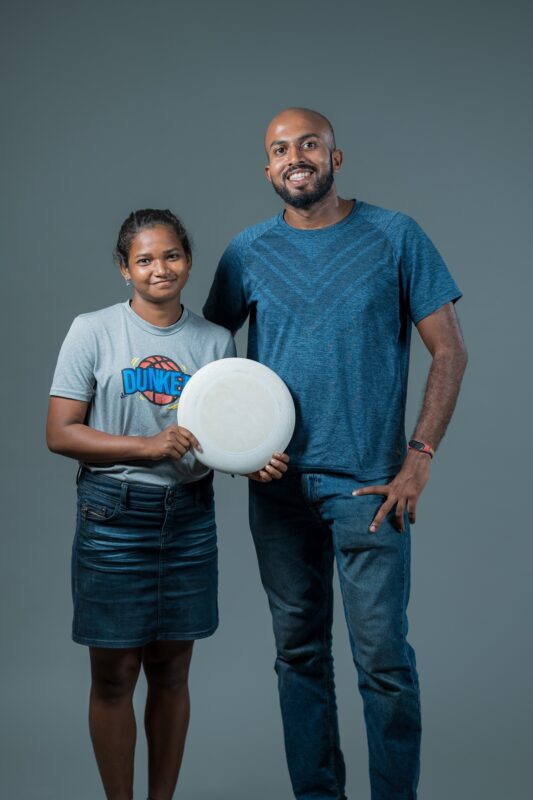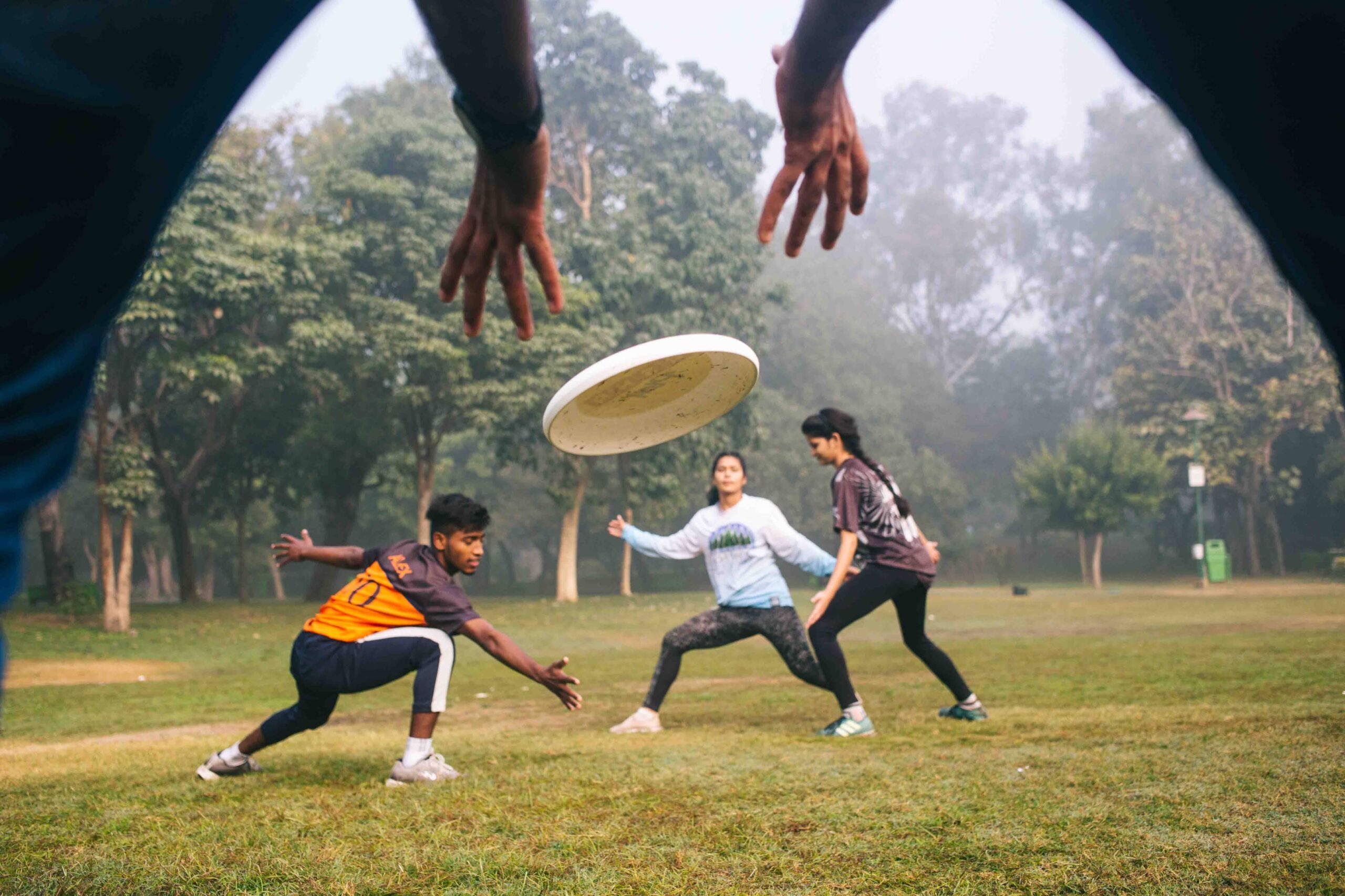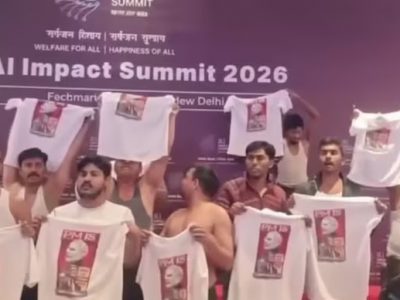When Benoy Stephen was in his final year at St. Stephen’s College in 2015, he came across a game that would eventually bring catharsis in the lives of many underprivileged children – one flying disc at a time
The thrill of the game – Ultimate Frisbee – not only became a source of confidence, discipline and pride for these children, but also weaved a sense of belonging among them.
“There was an exchange student who introduced it to me in college. And then we found that there were already people who were playing this sport in Delhi,” Stephen recalls.
The sport, however, was majorly played by corporate professionals, urban rich, and Indian expats.
During one of the practice sessions, Stephen met with GK MAD, a group of enthusiastic young boys and girls, who would watch them play Frisbee at a park in Zamrudpur, Greater Kailash. “Once they [GK MAD] understood what the game was all about, they started their own evening sessions and brought with them their friends, brothers, and sisters,” Stephen says.

Observing them playing Frisbee, Stephen volunteered to help them out with other friends and this culminated into a more organized team in October 2015. “Personally, it was a very special experience for me,” Stephen reflects.
Ultimate Frisbee is a non-contact team sport where the objective is to score points by catching the disc in the opposing team’s end zone while adhering to a set of rules that emphasise fair play and sportsmanship.
It’s typically played with two teams of seven players – both male and female – on a rectangular field.
The game is known for its emphasis on self-officiation, where players make their own calls and resolve disputes through discussion, promoting a strong spirit of the game.
“As these kids started to put more effort into the game, we realized that these children have to go beyond Delhi NCR,” he says.

In 2017, after almost two years of everyday practice, the team had their first national tournament in Bengaluru. Even though the team won the 2nd Division in their debut, Stephen says that he was proud that they had won the Spirit Of The Game award, “something that is very difficult” and the most coveted in ultimate frisbee.
GK MAD soon became a name in the Indian Frisbee world and after seven years, they recently finished second in the National Championship Series conducted by the Ultimate Players’ Association of India (UPAI) in the country. Of the many things that have helped the underprivileged children, the sport’s tendency of conflict resolution through discussion is perhaps the most significant. Almost all the children interviewed said that the game has helped them to become calm, focused, and confident.
“There were children, who were not motivated enough to continue their studies. But once they started to play and win medals, something kindled in them that changed other aspects of their lives,” says Stephen, who hails from Kerala.
Manjeet, 22, who joined the team in 2018, says that his behavior was aggressive before he started playing Frisbee. A senior member of the organization who now coaches new joinees, Manjeet was first interested in football and took to Frisbee once he observed people playing with the disc in the park.
The football sessions and the Frisbee session used to take place at the same time, and Manjeet was bothered by how the Frisbee club used the park that was majorly used for football matches. “I used to have a bad mouth and was very aggressive in nature – in fact, I once challenged the Frisbee club to race with me because I thought I was better than them, but I lost. Upon joining Frisbee, I realized how thoughtful discussions can bring in a resolution and this changed the way I looked at my own behavior and life, ” Manjeet says.
He soon became calm and composed, and decided to never leave the sport. Along with being a coach, he also manages accounts and community operations of Y-Ultimate.
Kaushik, 12, who is much younger than Manjeet, speaks on similar lines. “What I love about the sport is that people here don’t use slurs,” he says.
Stephen says that the sport allows the players to process the emotions that they may not otherwise give attention to. Soon after joining the Frisbee club, the children become less aggressive, focus on their career, seek good company, and feel encouraged to learn life skills.
In fact, it is the aspect of the game that the organisation focuses upon, where they teach the children to learn to control their emotions, build their future, and become more confident.
As the sport is mixed-gender, the girls also feel empowered to be playing with boys. Mansi, a resident of Zamrudpur, states that what really intrigued her about the play was the involvement of girls with as much emphasis as the boys.
“It is a place [Zamrudpur] where you would not see many girls playing sports. I have always seen boys playing cricket, football, and other sports. So Frisbee, in a way, feels empowering because you are standing on an equal footing with boys,” she says.
Aayush, 12, joined the organisation in August and feels blessed to be a part of the sport that has no hierarchy. He used to play football before he enrolled himself with the Frisbee club and is now an active member.

“What I love about the sport is that there is no junior or senior. This makes the sport even more special,” he remarks.
The organisation Y-Ultimate has also produced multiple talents that have played for team India at the International stage. As the members come from underprivileged backgrounds, some of them couldn’t participate in the competitions after being selected due to lack of money.





